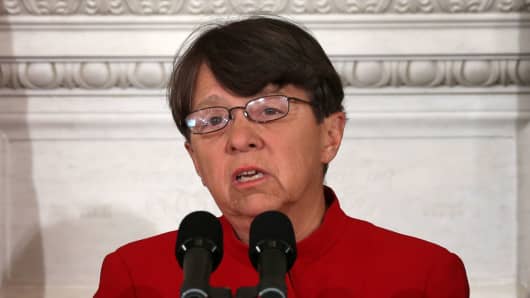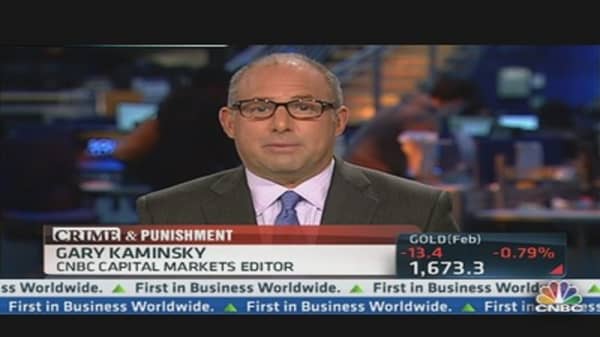Mary Jo White will likely face questions about her work for big Wall Street clients when senators on Tuesday consider her nomination to head the U.S. Securities and Exchange Commission, but one lawmaker wants to huddle about a field of another sort: football.
Senator David Vitter, a Louisiana Republican and big New Orleans Saints fan, plans to ask White about legal work she performed while at Debevoise & Plimpton for the National Football League in the infamous "Bountygate" scandal.
The NFL hired White to review evidence that Saints players were paid bounties from 2009-2011 to injure members of opposing teams. As the allegations unfolded last year,she told reporters the league's basis for issuing disciplinary actions was "quite strong" and based on "multiple, independent,first-hand accounts."
Vitter says that the evidence against the individual players was insubstantial and he is dissatisfied with White's independent review.
"If Mary Jo's work at the SEC is anything close to her botched work for the NFL, folks who want to protect their investments, like the victims of the Stanford Ponzi scheme, are in trouble," said Vitter, who is not expected to block her nomination.
White and Richard Cordray, President Barack Obama's choice to lead the Consumer Financial Protection Bureau, will appear together before the Senate Banking Committee on Tuesday.
Though it will be White's first public opportunity to discuss her background and views on financial regulation, Cordray has been the more controversial figure as the leader of the CFPB since January 2012, an interim position because Republicans have so far refused to confirm him.
Obama used a procedural maneuver known as a "recess appointment" to install him temporarily, and here-nominated Cordray in January.
Under his tenure, the CFPB has worked on an overhaul of mortgage regulations. It has also taken on debt collectors and brought several enforcement actions related to credit-card add-on products.
Business leaders have been largely satisfied with Cordray's leadership, and Republicans generally do not have problems with him personally. But they have vowed to block any director until Democrats agree to convert the bureau into a bipartisan commission and change how it is funded.
Adding to the controversy, a U.S. appeals court ruled earlier this year that recess appointments to the National Labor Relations Board made at the same time Cordray was installed were unconstitutional because lawmakers were not technically in recess.
That ruling has raised questions about Cordray's appointment as well, and he is expected to field questions from senators on Tuesday about the work he has done and whether it could be invalidated by the courts.
"We want people to know they now have a new agency standing on their side, looking out for their interests, to help restore their confidence in the consumer financial marketplace. So far, even though our work is still in its early stages, we have been busy addressing some of the most critical problems,"said Cordray in prepared testimony.




